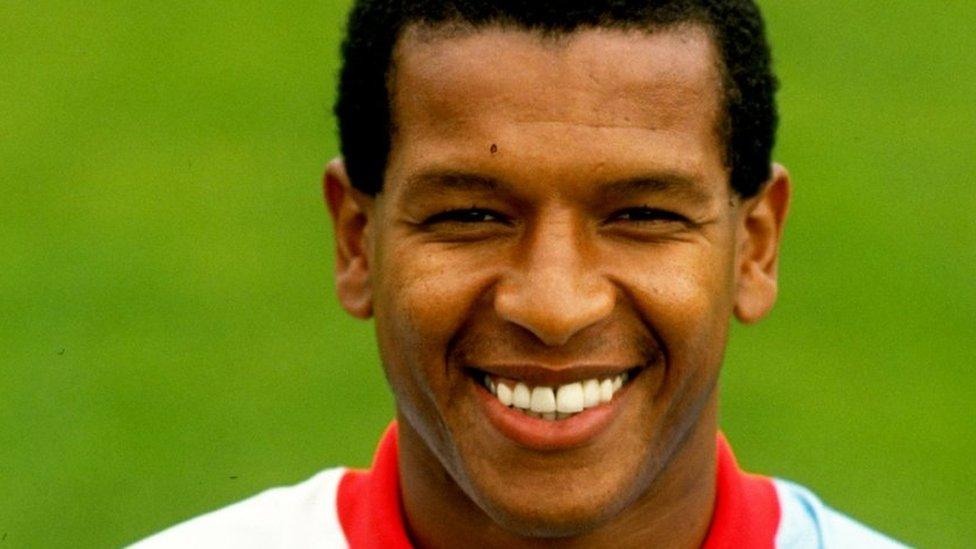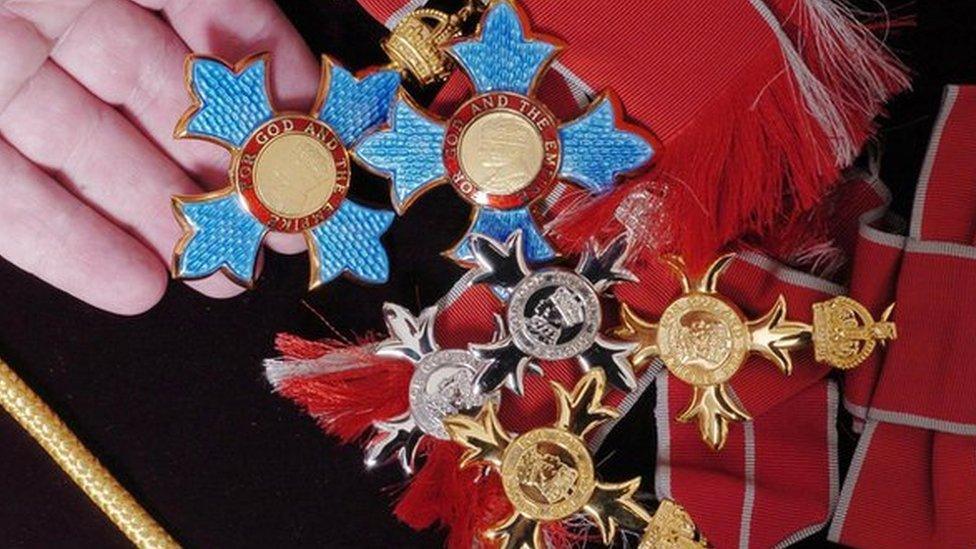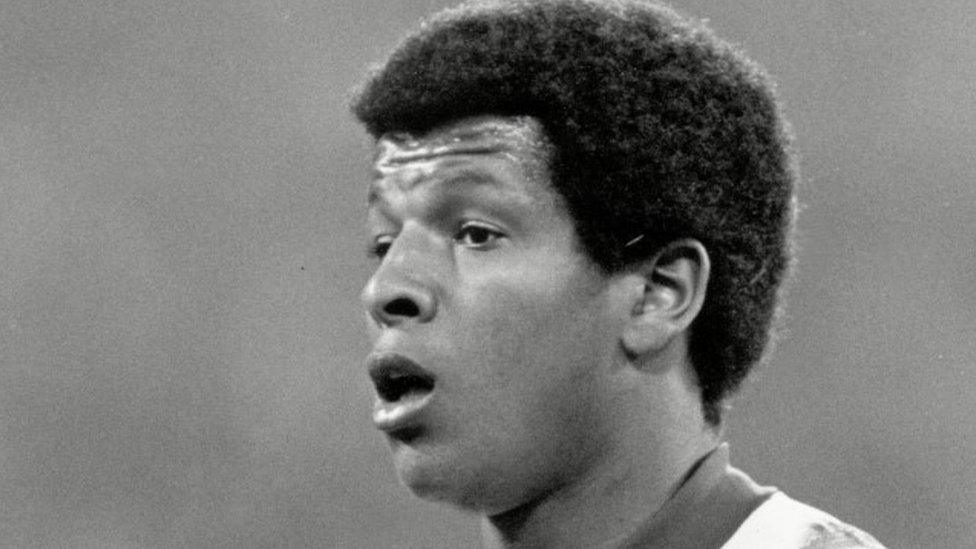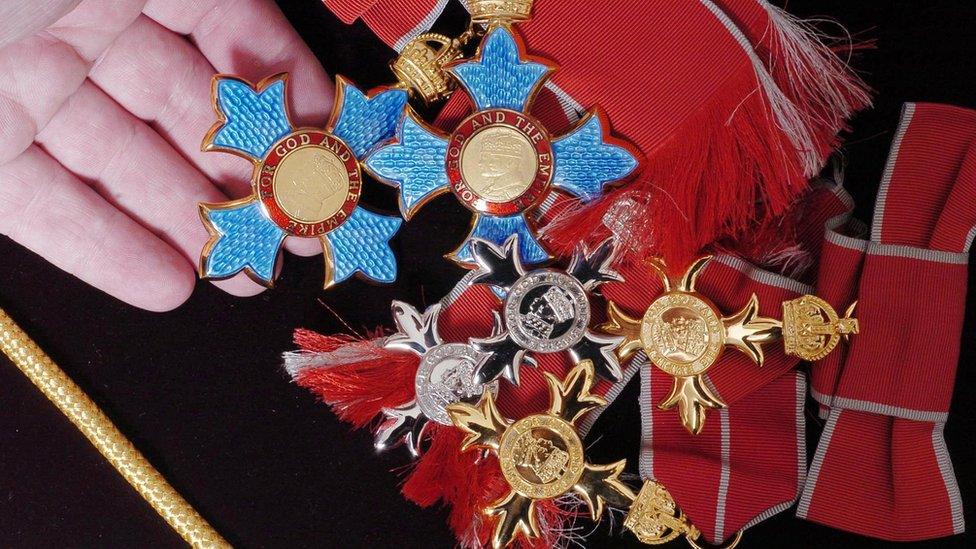Liverpool FC's first black player Howard Gayle wants MBEs changed
- Published

Howard Gayle played for several clubs and England Under-21s during his career
The first black footballer to play for Liverpool has said he turned down an MBE because it was "against my values".
Howard Gayle said that the honour - Member of the Order of the British Empire - should have its name altered so that there is no reference to "Empire".
Mr Gayle, 58, was offered the MBE earlier this year because of his work in combating racism in football.
He also said clubs should do more to deal with homophobia in the game.
Mr Gayle started his professional career with his hometown club Liverpool in 1977, moving on to Fulham, Newcastle United, Birmingham City, Sunderland, Stoke City, Blackburn Rovers and Halifax Town while he also won three caps for England Under-21s.
He was offered the MBE in the Queen's Birthday Honours this summer for his work with Kick It Out, football's equality organisation, at clubs and in the wider community.
'Accepting'
He told the Victoria Derbyshire programme he was "really surprised" that his decision had become a big story, adding of the award: "It was against my values.
"If they want to be inclusive and accepting of black people around the UK and the Commonwealth, then they need to change the title of it - as it's an exclusive club being an MBE or OBE or one of those gongs.
"A lot of people around the world contacted me to say they accepted my decision and that the title of MBE did rankle."
You can read more stories about inspiring sportspeople on our Pinterest board, external


CBE, OBE and MBE medals
Other honours refusals
LS Lowry - the painter turned down a total of five honours, including an OBE in 1955, a CBE in 1961 and a knighthood in 1968
Benjamin Zephaniah - the poet spurned an OBE in 2003 saying it stood for colonial brutality and slavery
David Bowie - the music legend turned down a CBE in 2000
Dawn French and Jennifer Saunders - the comedy duo refused OBEs in 2001
John Lennon - the Beatles legend returned his MBE, four years after accepting it in 1965, in protest against the Vietnam and Biafran wars
JG Ballard - the writer rejected a CBE, saying he was opposed to the "preposterous charade" of the honours system

King George V created the MBE, as well as the CBE and OBE, during World War One to reward outstanding contributions by civilians and military personnel working in support of the armed forces.
They are now given for prominent national or regional roles and to those making distinguished or notable contributions in their own specific areas of activity. The MBE, in particular, can be given for achievement or service in the community.
Mr Gayle is best known for his outstanding performance for Liverpool in the semi-final of the 1981 European Cup away to Bayern Munich, when he came on for the injured Kenny Dalglish.
Discussing his early career, he said racist comments then were "just the norm and a thing that was accepted and wasn't challenged" and that governments of the time had been "backward" in trying to eradicate such attitudes.
But nowadays football "does more than any other entity in eradicating it", he added.
However, the game had more to do in removing other forms of prejudice, he said.
"Homophobia is an issue and it's something we tackle in our programmes," Mr Gayle said. "A lot of people still live in the dark ages and think sexuality is part of a choice and that they choose that path of gay or straight.
"We try to get the message out that it doesn't really matter."
The Victoria Derbyshire programme is broadcast on weekdays between 09:00 and 11:00 on BBC Two and the BBC News channel.
- Published11 August 2016

